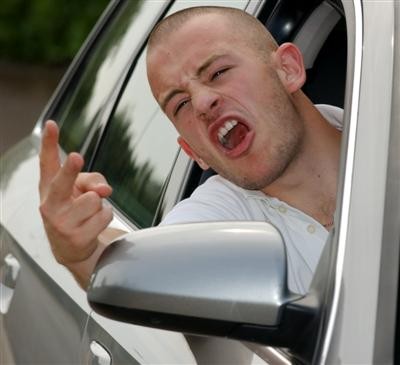
"They don't pay road tax, they block the road, they are inconsiderate, they overtake, they are bloody slow . . . I pay road tax, so I should have priority."
That statement may sound like it was made by road.cc's new friend Councillor Lawrence Abraham, but in fact it came from an unnamed motorist interviewed as part of a just-released Department for Transport-commissioned report into cycling safety and the attitudes of other road users towards cyclists.
The report, snappily titled, Safety, cycling and sharing the road: qualitative research with cyclists and other road users does not make for uplifting reading and will confirm what many cyclists already know to be the case, i.e. that some drivers view cyclists as inconveniences at best and a road-using underclass who shouldn't be there at all, at worst (maybe "Oi Cyclist! Get off the road" might have been a more apt title - ed)
Tellingly, the report was released last Thursday with little attendant publicity indeed road.cc understands that a draft copy was prepared over a year ago, perhaps the DfT's reticence on the matter is because the report does paint such a depressing picture of the interface between cyclists and what it terms other road users (ORUs). Some of the main conclusions are:
• The evidence suggests a failure in the culture of road sharing, with a lack of consensus about whether, and how, cyclists belong on the roads.
• There was higher empathy for car drivers across all types of road user than for minority road users such as cyclists. There was also evidence of a stereotype of cyclists, characterised by failures of attitude and competence.
• Some infrastructure may create further room for disagreement about the norms of road sharing. Different types of cyclist also have differing, and potentially conflicting, needs from infrastructure.
• When it comes to encouraging cyclists to make themselves safer, it may be easier to promote visibility than helmet wearing. Promoting visibility could also be linked to the promotion of safer road-sharing.
• Cyclists in our groups used different behavioural approaches to manage perceived risks from ORUs, in the context of choices and limitations created by the bike.
• There were important attitudinal differences between adults and young cyclists. Children do not have experience of driving a motorised vehicle, and so lack an understanding of the perspective and needs of ORUs.
• Cyclists and ORUs explained the failures of road sharing in different ways, ranging from acts of aggression to failures of expectation or other situational factors.
The CTC said the report genuinely sheds light on detailed issues that are normally only dealt with in broad brush strokes.
"We feel this is a balanced report with the author taking a nuanced, well thought-out approach that is helpful in reflecting motorists' attitudes towards cyclists," said Chris Peck, the CTC's Policy Coordinator. "It goes further than just casualty and collision figures, providing useful qualitative data that will assist us in influencing Government attitudes towards cycling in future."
You can download a copy of the report here.
source: http://road.cc/content/news/24074-updated-oi-cyclist-get-road-dft-report...
